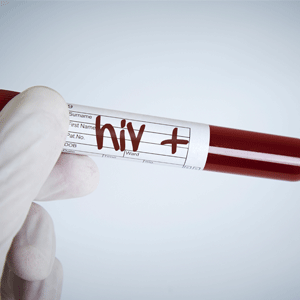The Ugly Truth About Your Toothbrush
As you reach for your toothbrush each morning, you may not realize what’s hanging out on its bristles.
“Toothbrushes can become contaminated with oral microbial organisms whenever they are placed in the mouth,” says Sharon Cooper, PhD.
Viruses and bacteria from an infected person’s mouth can live for weeks on a toothbrush surface, and continue to cause illness, says Cooper, a clinical associate professor at the University of Florida College of Dentistry.
Even normal, healthy microorganisms can cause infections, especially if they enter your gum tissue due to an injury, a break, or an oral ulcer, she adds.
Toothbrushes don’t have to be sold in sterile packaging, so they may have bacteria right out of the box, says the American Dental Association’s official statement on toothbrush care.
Keep It Clean
You may not give much thought to cleaning your toothbrush, since you’re wetting it every day to scrub your teeth. However, it’s important -- and easy -- to do.
Wash it. Give your toothbrush a thorough rinse with tap water to remove debris. If you have a systemic illness or immune disorder, you may want to soak it in antibacterial mouthwash or run it through the dishwasher, Cooper says.
Try deep cleaning. There are many types of toothbrush sanitizers on the market, Cooper says. Some use ultraviolet light to kill microorganisms.
Store it properly. After use, don’t pop that wet toothbrush back into your medicine cabinet, drawer, or bathroom cup and forget about it.
Store it upright, in a rack or cup, where it can dry out. Look for a cover that lets air circulate and prevents mold, but isn’t completely sealed. The lack of air can foster bacteria.
When to Call It Quits
How long should you keep a toothbrush to prevent the ick from building up? Here are a few useful tips:
Know when to let go. Replace your toothbrush about every 3 to 4 months, or when it shows signs of wear. “Frayed bristles will not clean the teeth and gums adequately,” Cooper says.
Yes, that means all toothbrushes. Treat electric or power models the same way you handle an old-fashioned one. Chuck the brush attachment when the bristles begin to show signs of wear, Cooper says.
No Sharing
Tempted to lend a toothbrush to a family member? Don’t.
Toothbrush sharing can transfer saliva and bacteria -- even the kind that cause tooth decay. “Tooth decay is considered an infectious disease ... one more reason not to share or borrow a toothbrush," Cooper says.
“Toothbrushes can become contaminated with oral microbial organisms whenever they are placed in the mouth,” says Sharon Cooper, PhD.
Viruses and bacteria from an infected person’s mouth can live for weeks on a toothbrush surface, and continue to cause illness, says Cooper, a clinical associate professor at the University of Florida College of Dentistry.
Even normal, healthy microorganisms can cause infections, especially if they enter your gum tissue due to an injury, a break, or an oral ulcer, she adds.
Toothbrushes don’t have to be sold in sterile packaging, so they may have bacteria right out of the box, says the American Dental Association’s official statement on toothbrush care.
Keep It Clean
You may not give much thought to cleaning your toothbrush, since you’re wetting it every day to scrub your teeth. However, it’s important -- and easy -- to do.
Wash it. Give your toothbrush a thorough rinse with tap water to remove debris. If you have a systemic illness or immune disorder, you may want to soak it in antibacterial mouthwash or run it through the dishwasher, Cooper says.
Try deep cleaning. There are many types of toothbrush sanitizers on the market, Cooper says. Some use ultraviolet light to kill microorganisms.
Store it properly. After use, don’t pop that wet toothbrush back into your medicine cabinet, drawer, or bathroom cup and forget about it.
Store it upright, in a rack or cup, where it can dry out. Look for a cover that lets air circulate and prevents mold, but isn’t completely sealed. The lack of air can foster bacteria.
When to Call It Quits
How long should you keep a toothbrush to prevent the ick from building up? Here are a few useful tips:
Know when to let go. Replace your toothbrush about every 3 to 4 months, or when it shows signs of wear. “Frayed bristles will not clean the teeth and gums adequately,” Cooper says.
Yes, that means all toothbrushes. Treat electric or power models the same way you handle an old-fashioned one. Chuck the brush attachment when the bristles begin to show signs of wear, Cooper says.
No Sharing
Tempted to lend a toothbrush to a family member? Don’t.
Toothbrush sharing can transfer saliva and bacteria -- even the kind that cause tooth decay. “Tooth decay is considered an infectious disease ... one more reason not to share or borrow a toothbrush," Cooper says.



Comments
Post a Comment